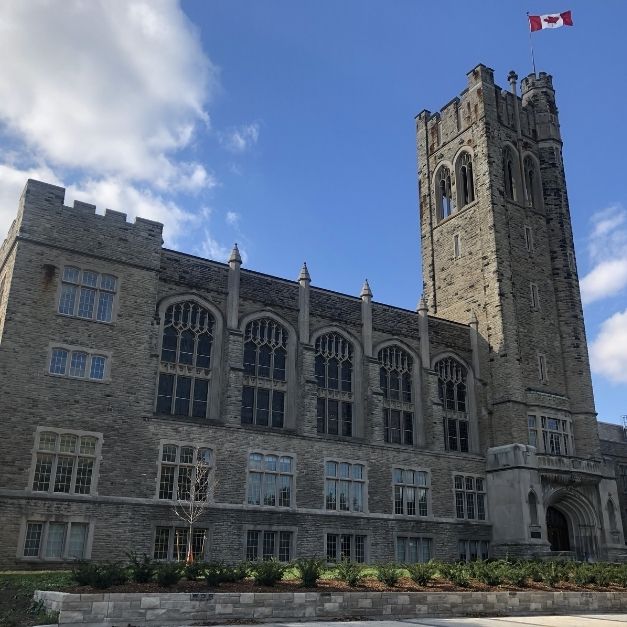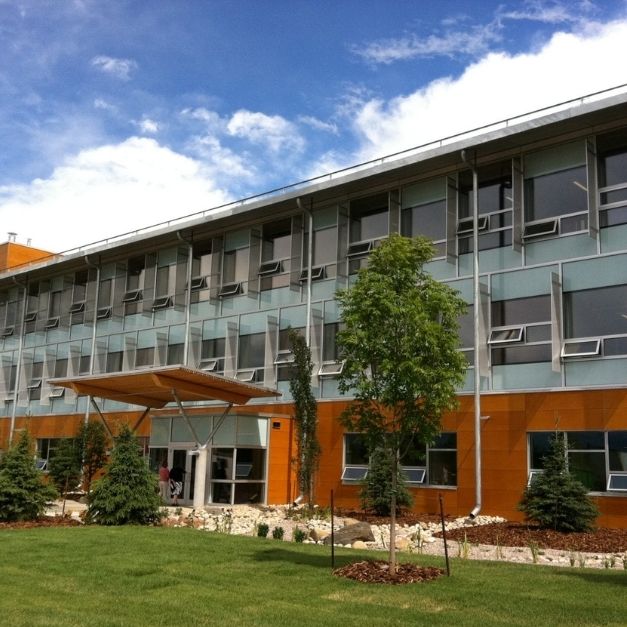
Study In Canada
The employment rate for university graduates aged 25 to 64 in Canada
was 86.3% according to Statistics Canada.
It’s not just the CN towers in Canada that hold the world record but many of the Canadian institutions have also been a part of the World Rankings released by QS. This North American country is both academically stimulating and culturally enriching. And if there’s anything more that Canada has to offer is that it’s one of the safest places to be as an international student with very low crime rates. Let’s read more about this amazing country.
Why Study in Canada?
- Tuition fees in Canada are comparatively low compared to other English speaking countries like the USA and UK.
- There is not one but many pathways to gain permanent residency in Canada like Express Entry Program, Province Nominee Program, etc.
- Canada is known for its high safety standards, ranking as one of the safest countries globally. According to the Global Peace Index 2022, Canada ranks 12th.
- Studying in Canada means you’ll have easy access to activities like skiing, hiking, and canoeing. Perfect for balancing academics with adventure
Canada offers 3 types of student visas to international students- S1 Visa, SX-1 Visa and SW- 1 Visa, each serving the same purpose but for slightly different reasons.
- S1 visa- Issued to study at any DLI for more than six months
- SX-1 visa- Issued to undertake short-term studies in Canada
- SW1 visa- Issued particularly if your curriculum requires you to complete a work placement.
Fund Requirements
To obtain a Canadian student visa, also known as a study permit, you need to demonstrate that you have sufficient funds to support yourself during your stay in Canada. To demonstrate this, you need to submit your bank statements or drafts with proof of having at least a year of tuition fees and living expenses in your bank account. It is done to ensure that you can fully focus on your education without facing financial difficulties.
Canada Visa Application Process
There are two ways for you to apply for a Canadian student visa- online or offline. However, the offline application is restricted only to people with disability and people with identity or citizenship issues.
For online applications, the Canadian Immigration office offers two categories to apply- The Student Direct Stream and The Non- Student Direct Stream, where students from selected countries can apply through the SDS to get faster permits and students from Non- SDS can apply through the other stream.
For applications, you need to register on the IRCC website, create an account and fill the application form and submit along with all the correct documents. Make the $150 fees payment and attend the interview, if required. Upon acceptance, you will receive a letter of introduction and temporary residency, which you must bring to Canada. After arriving, visit an official biometric collection site in person, having booked an appointment beforehand, and provide your biometrics.
Cost of Living in Canada
When considering studying in Canada, understanding the cost is crucial for effective planning and budgeting. Tuition fees vary widely based on factors such as the type of program, the level of study, and the institution. Beyond tuition, students must also account for living expenses which we have discussed below:
Undergraduate Tuition Fees- Around $8,000- $90,000
Postgraduate Tuition Fees- Around $ 10,000- 120,000
Living Expenses
According to the Immigration, Refugees and Citizenship (IRCC) Canada, you’ll need around CAN$20,635 excluding tuition fees every year if you are living outside Quebec in Canada. This amount includes all the living expenses including travel, housing, food, water, etc., however, depending on your standard this amount could vary. If you are an international student coming to stay and study in the Quebec region then you must have around CAD$15,078 in your bank account for expenses.
Admission Requirements to Study in Canada
To study in Canada as an international student, you’ll need to meet several admission requirements, which can vary depending on the level of study (undergraduate or postgraduate) and the specific institution. Here’s a general overview:
Academic Qualifications:
- Completion of secondary school (high school) with a minimum average, typically around 65-75% in relevant subjects for UG admissions
- A recognized bachelor’s degree with a minimum overall average of around 60-70% or above from a recognized institution for PG admissions
- Specific prerequisite courses may be required based on your intended field of study (e.g., science courses for engineering).
English Proficiency:
- Proof of English Language Proficiency or French Language Proficiency for English- taught and French- taught courses respectively. You can show test proof through tests like IELTS, TOEFL, PTE, Duolingo, TEF, etc. Some universities also accept MOI as English language proof.
Standardized Tests:
- Some programs may require standardized test scores (e.g., SAT, ACT) or specific entrance exams depending on the province and institution.
According to the immigration News Canada and other popular sources, IT has been one of the fastest growing career segments in Canada. Technology is advancing at an unprecedented rate globally and Canada is well positioned to capitalize on this. Here are some of the top job roles in Canada for students in current times:
Top Rated Jobs in Canada
| Job Roles | Average Salaries |
| Anaesthesiologist | CAD$150,000 |
| Software Engineer | CAD$110,000 |
| Chief Marketing Officer | CAD$150,000 |
| Registered Nurse | CAD$76,000 |
| Pharmacist | CAD$80,000 |
| Accountant | CAD$60,000 |
Part Time Jobs in Canada
With a valid study permit, students enrolled at designated learning institutions (DLIs) can work up to 20 hours per week during regular academic sessions and full-time during scheduled breaks such as summer or winter holidays.
Post Study Work Opportunities
You will be eligible for a Post Study Work Permit in Canada if you have graduated from a Designated Learning Institution (DLI). According to the updated rules in Canada, students who hold a masters degree of less than 2 years (min 8 months) will be eligible for a 3- year Post Graduate Work Permit. The length of the wok permit will depend on your level and duration of study as well as expiration of passport, whichever comes first. You can also apply for extension of your Post Graduation Work Permit in Canada.
Student life in Canada
You will have the most fun- filled and enriching experience in Canada. Besides academics, universities have a multitude of clubs, which is a good way to explore your network and build connections. Canada’s lifestyle and culture have been significantly shaped by European traditions, primarily those of the British and French, alongside the rich contributions of its Indigenous cultures. This blend is evident in various aspects of Canadian life, including language, cuisine, and festivals, thus providing enough multicultural experience to international students.
Toronto and Vancouver are both large cities with plenty of activities off-campus, making them excellent choices for international students. Moreover, both cities have robust public transportation systems, making it easy for students to navigate and discover local attractions, which helps them adapt to their new environment more comfortably.and events that help you connect with others and integrate into the community. Universities typically offer robust support services, including academic advising and ESL programs, to assist with the transition.
While cultural differences and homesickness can be challenging, the opportunity for personal and professional growth is significant. Engaging with local and international communities, participating in cultural events, and exploring new environments contribute to a rewarding and enriching experience.
Top Courses in Canada
Top Universities in Canada

University Canada West

University of Niagara Falls

University of Western Ontario

Athabasca University
Upcoming Intakes in Canada
| University | Intake | Deadline |
|---|---|---|
| St. Lawrence College | Sep 2025 | July 30, 2025 |
| Acadia University | Oct 2025 | Sep 8, 2025 |
| Algonquin College | Sep 2025 | Aug 1, 2025 |
| Trent University | Sep 2025 | Jun 15, 2025 |
| Georgian College | Sep 2025 | Jun 15, 2025 |
| Durham College | Sep 2025 | Jul 31, 2025 |
Scholarships in Canada
Vanier Graduate Scholarships
- Amount: $150,000 for 3 years
- Type: Merit-Based
- Level of Study: PhD
Ontario Graduate Scholarships
- Amount: Upto $15,000 (2- 6 years)
- Type: Merit-Based
- Level of Study: Postgraduate/PhD
Canada-ASEAN Scholarships
- Amount: $10,200- $15,900
- Type: Merit-Based/Need Based
- Level of Study: Undergrad/Postgrad
Trudeau Foundation Scholarships
- Amount: Upto $50,000 for 3 years
- Type: Merit-Based
- Level of Study: Postgraduate/PhD
The Lester B Pearson International
- Amount: Fully Funded
- Type: Merit-Based
- Level of Study: Undergraduate
MPOWER Women STEM Scholarship
- Amount: Up to $3,000
- Type: Merit-Based
- Level of Study: Postgraduate
